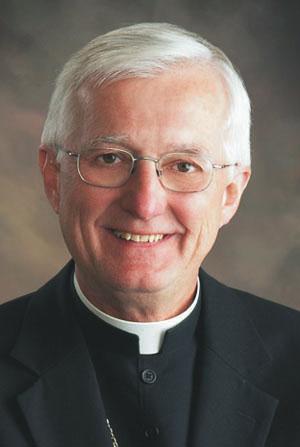
By Barb Arland-Fye
Bishop Martin Amos and his brother bishops approved their first major statement on physician-assisted suicide at their spring meeting last week. They also approved extensive revisions to their 2002 Charter for the Protection of Children and Young People. And they agreed to allow gradual introduction of the musical settings of the people’s parts of the Mass beginning in September and are taking responsibility for certifying Catholics for ecclesial ministry.
The U.S. Conference of Catholic Bishops (USCCB) met June 15-17 near Seattle.
Commenting on the policy statement on physician-assisted suicide, Bishop Amos said it is a prime example of the bishops in their teaching mode on the respect for all of human life. “This is just one part of the bigger picture on respect for all human life. It’s making sure Catholics understand our position and why it’s morally wrong to take one’s life.”
While supporters of physician-assisted suicide promote it as a good and compassionate choice — the Hemlock Society, for instance, changed its name to Compassion & Choices — Bishop Amos disagrees. With today’s technology, physicians are able to help patients manage and alleviate pain.
He pointed out that the bishops’ letter states that “suffering itself need not be meaningless — for as Pope John Paul II showed during his final illness, suffering accepted in love can bring us closer to the mystery of Christ’s sacrifice for the salvation of others.”
“As a Church, we believe in redemptive suffering,” Bishop Amos said.
Concerning revisions of the Charter for Protection of Children and Young People, the bishop said that most of them involve updates to the last revision in 2005 and do not involve substantive changes. The framework of the charter is solid.
“I think the Catholic Church is one of the safest places there is now — with our Virtus training programs and our written agreement with the Scott County Attorney to turn over the names to prosecutors of any clergy suspected of abusing children. I think this has made us as a Church one of the safest places for kids.”
In the matter of music settings, the bishop said he has reservations about introducing the congregation’s sung parts of the Mass as early as September. “I need to have some discussion with the liturgy people and music people of our diocese about how we want to approach this.”
And on the issue of certification of Catholics for ecclesial ministry, Bishop Amos believes the bishops’ plan of action will be very helpful to dioceses. The USCCB has formed a new Subcommittee on Certification for Ecclesial Ministry, which will work closely with the USCCB committees on Laity, Marriage, Family Life and Youth and on Evangelization and Catechesis.
Information distributed to the bishops about the new subcommittee said its “key mission responsibilities” would include:
• Ensuring that those who minister in the name of the Catholic Church … are humanly and spiritually mature, well prepared through education and formation, possess professional competence and pastoral skills and adhere to authentic Church teaching.
• Reviewing and approving competency-based certification standards and procedures for voluntary use by dioceses and national associations for those working as campus ministers, parish catechetical leaders, youth ministers, pastoral associates, music directors and hospital, prison or seafarer chaplains.
• Promoting the development and application of voluntary certification standards based on the U.S. bishops’ 2005 statement on lay ecclesial ministry, “Co-Workers in the Vineyard of the Lord.”








